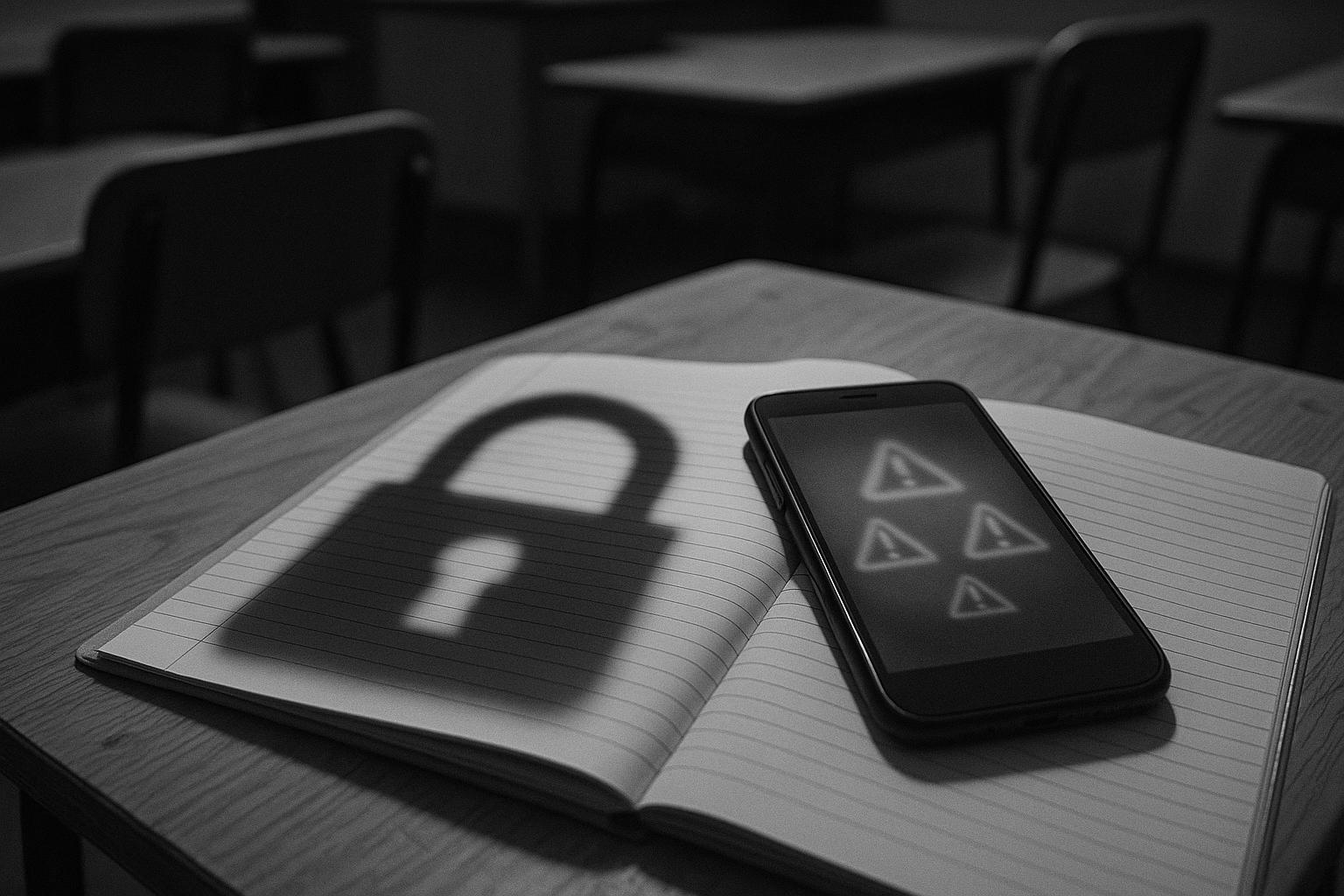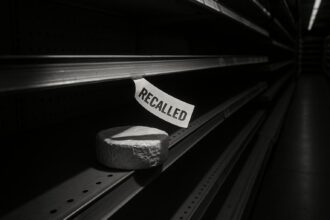Dame Rachel de Souza called on government, regulators and platforms to close loopholes — including VPN workarounds — tighten age assurance, criminalise depictions of strangulation in porn and boost RSHE training, after research found most young people encounter explicit material accidentally, often well before their 18th birthday.
Dame Rachel de Souza, the Children’s Commissioner for England, has urged urgent action to protect children from online pornography after a report found a rising proportion of young people are encountering sexually explicit material — often by accident — at increasingly younger ages. According to coverage of the Commissioner’s findings in the Evening Standard, Dame Rachel called on government and regulators to close loopholes that allow children to bypass age checks, including through virtual private networks (VPNs), and set out a package of measures spanning regulation, criminal law and education.
The Commissioner’s own research paints a stark picture of early and widespread exposure. Survey data published by the office shows around seven in 10 respondents said they had seen pornography before their 18th birthday, with the average age of first exposure reported as 13 and some children describing encounters as young as six. The study highlights that most exposures are unintended and that social media platforms — notably X, Instagram and Snapchat — are common routes by which children come across explicit content, while young people report seeing violent and degrading material that can normalise harmful sexual behaviour.
A central recommendation is that online pornography should be subject to the same content requirements as offline material. The report argues for parity of protection between digital and physical distribution, proposing that online content be audited and regulated to the same standards that apply to video distributed under existing UK law. The British Board of Film Classification has already said it stands ready to expand its role and audit online pornography, pointing to its long experience classifying offline video works and warning that violent and abusive material available online would be illegal to distribute offline.
The report also pushes for tougher criminal measures. It calls for depictions of non-fatal strangulation in pornography to be comprehensively outlawed — a change the government has since signalled it will introduce. Ministers announced plans to amend legislation so that publishing or distributing pornographic material showing strangulation will be a criminal offence, framing the move as part of wider efforts to tackle and reduce violence against women and girls. Campaign groups and some politicians have welcomed the step, while government statements say further detail on implementation will follow.
Education and prevention form the other pillar of the Commissioner’s approach. The report recommends a recruitment drive for specialist Relationships, Sex and Health Education (RSHE) teachers, national professional qualifications for those specialists, and stronger support for classroom delivery so teachers can confidently address online harms. The Commissioner’s blog and consultation materials call for RSHE to be rooted in safeguarding, for designated leads to curate teaching, for lesson materials to be published and kitemarked (for example via national providers such as Oak National Academy), and for schools to consult pupils to ensure lessons meet their needs.
Closing regulatory gaps will be technically and politically challenging. The government’s explainer on changes to the Online Safety Act sets out measures requiring platforms to use “highly effective” age assurance — which might include facial scans, photo ID or credit-card checks — and gives Ofcom enforcement powers and fines to compel compliance. The same guidance, however, recognises that tools such as VPNs remain lawful for adults; it says platforms must not promote workarounds that help children bypass protections and that services deliberately targeting children with such tools could face action. Regulators, industry and campaigners therefore face the practical task of balancing children’s protection with adults’ privacy and lawful access.
Taken together, the Commissioner’s recommendations, industry offers to help, and the government’s legislative response signal a more interventionist posture towards online sexual content. But the reforms will require cross‑sector co‑ordination, new resources for schools and enforcement agencies, and clear operational detail on age assurance and auditing to be effective. The Commissioner’s research underlines the urgency: with accidental exposure still common and harmful content reportedly shaping young people’s attitudes, policymakers and schools have been urged to act swiftly to reduce harm and give teachers and families the tools to keep children safe online.
 Reference Map:
Reference Map:
Reference Map:
- Paragraph 1 – [1], [2]
- Paragraph 2 – [3]
- Paragraph 3 – [1], [5]
- Paragraph 4 – [6], [1]
- Paragraph 5 – [4], [1]
- Paragraph 6 – [7], [2]
- Paragraph 7 – [3], [5], [6], [7]
Source: Noah Wire Services
- https://www.standard.co.uk/news/tech/children-government-england-dame-relationships-b1243543.html – Please view link – unable to able to access data
- https://www.standard.co.uk/news/tech/children-government-england-dame-relationships-b1243543.html – This Evening Standard article reports on the Children’s Commissioner Dame Rachel de Souza and her report on children’s exposure to online pornography. It describes findings that a rising proportion of young people say they have seen pornographic material, often by accident, and quotes Dame Rachel urging action to close loopholes such as VPNs that can let children bypass age checks. The piece summarises key recommendations from the report: auditing online pornography to align with offline content standards, comprehensively outlawing depictions of non‑fatal strangulation, and a recruitment drive for specialist RSHE teachers and better support for teachers effectively delivering the curriculum.
- https://www.childrenscommissioner.gov.uk/youth-voices-children-and-pornography/ – This Children’s Commissioner webpage summarises research into children’s encounters with online pornography. It reports that 70% of survey respondents said they had seen pornography before turning 18, with the average age of first exposure 13 and some children seeing material as young as six. The page notes most exposures are accidental and highlights social media platforms — X, Instagram and Snapchat — as common sources. It includes young people’s testimonies about violent, degrading content and its potential to normalise harmful sexual behaviour, and underlines the need for stronger online protections and improved education. Policymakers and schools are urged to act.
- https://www.childrenscommissioner.gov.uk/blog/children-and-rshe/ – This Children’s Commissioner blog sets out recommendations to improve Relationships, Sex and Health Education in English schools. Based on survey evidence and the Big Ask, the Commissioner argues RSHE must be rooted in safeguarding and delivered with parental engagement and transparency. Key proposals include designated safeguarding leads curating RSHE, improved training and a new National Professional Qualification (NPQ) for teachers specialising in RSHE, and publishing teaching materials online. The post calls for Oak National Academy to provide kitemarked resources, for curriculum guidance on emerging online safety issues, and for schools to consult pupils regularly to ensure lessons meet their needs.
- https://www.bbfc.co.uk/press-releases/bbfc-stands-ready-to-audit-online-pornography – The BBFC press release responds to the Independent Pornography Review by offering to extend its regulatory role and audit online pornography. The statement highlights concern about violent and abusive material accessible online which would be illegal to distribute offline, and stresses the organisation’s experience in classifying offline video works under the Video Recordings Act. The BBFC says it will not classify content that breaches criminal law or encourages dangerous emulation, and that parity between online and offline regulation is achievable. It calls for collaboration with government to ensure platforms tackle illegal and harmful pornographic content effectively to protect audiences, including children.
- https://www.gov.uk/government/news/strangulation-in-pornography-to-be-made-illegal – The UK government press release announces plans to criminalise depictions of strangulation in pornography following recommendations from the Independent Pornography Review. It explains the amendment to the Crime and Policing Bill will make publishing or distributing pornographic material showing strangulation illegal, emphasising the dangers and long‑term harm such acts cause and the link to normalising violence against women. Ministers and campaigners welcome the move as part of a strategy to halve violence against women and girls. The release situates the change within existing legislation such as the Obscene Publications Act and says further details will follow. Campaign groups welcomed it.
- https://www.gov.uk/government/news/keeping-children-safe-online-changes-to-the-online-safety-act-explained – This GOV.UK explainer outlines how changes under the Online Safety Act protect children online, including new measures on pornography and harmful content. It explains that platforms must use highly effective age assurance — such as facial scans, photo ID or credit card checks — to prevent under‑18s accessing pornographic material and that enforcement powers and fines are available. The page notes VPNs remain legal for adults but platforms must not promote workarounds that help children bypass protections; services deliberately targeting children with such tools could face action. Ministers are quoted emphasising a child‑first approach to implementation and Ofcom’s enforcement role.
Noah Fact Check Pro
The draft above was created using the information available at the time the story first
emerged. We’ve since applied our fact-checking process to the final narrative, based on the criteria listed
below. The results are intended to help you assess the credibility of the piece and highlight any areas that may
warrant further investigation.
Freshness check
Score:
8
Notes:
The narrative is recent, published on 19 August 2025. Similar reports by Dame Rachel de Souza on children’s exposure to online pornography have been published in the past, such as in April 2025. ([standard.co.uk](https://www.standard.co.uk/news/tech/children-government-b1224635.html?utm_source=openai)) However, this specific report appears to be original and not recycled. The inclusion of updated data and recommendations suggests a higher freshness score. No discrepancies in figures or dates were found. The narrative is not based on a press release, which typically warrants a high freshness score.
Quotes check
Score:
9
Notes:
The direct quotes from Dame Rachel de Souza in this narrative do not appear in earlier material. No identical quotes were found in previous reports, indicating originality. The wording of the quotes matches the context of the current report.
Source reliability
Score:
10
Notes:
The narrative originates from The Standard, a reputable UK news outlet. Dame Rachel de Souza, the Children’s Commissioner for England, is a verified public figure with a legitimate role and public presence. The information presented aligns with her known positions and previous statements.
Plausability check
Score:
10
Notes:
The claims made in the narrative are consistent with previous findings by Dame Rachel de Souza regarding children’s exposure to online pornography. The recommendations for age verification on VPNs and the call for tougher criminal measures align with ongoing discussions in the UK about online safety. The language and tone are appropriate for the topic and region. No excessive or off-topic details are present, and the structure is coherent.
Overall assessment
Verdict (FAIL, OPEN, PASS): PASS
Confidence (LOW, MEDIUM, HIGH): HIGH
Summary:
The narrative is recent and original, with no recycled content or discrepancies found. The quotes are unique and consistent with Dame Rachel de Souza’s known positions. The source is reputable, and the claims are plausible and align with ongoing discussions about online safety in the UK.













